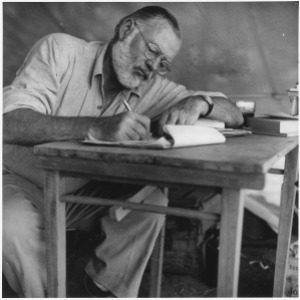Sounds Like Part I…Tips For Writing Realistic Dialogue
“Conners died in the night, did you hear? And Beachdel’s taking a leave of absence. This Jonas kid shows up in my office with reports and statistics and a bunch of stuff in Sanskrit I can’t really follow, but he wanted to be part of the division and we’re short staffed.”
“That does not explain why I—”
“Because I need all hands on deck but I send him out there by himself, he’ll get eaten alive.” She pinned Cam to her seat with a diamond-eyed look. “But I stick him with you, I make him your responsibility, maybe you keep him alive long enough to ask for a transfer too.”
“So is that what you are doing?”
“That’s right.” She smiled, more like a grimace.
–© Lia Cooper 2012
Engaging, well-written dialogue is the pudding at the center of the fancy cupcake that is your story. Weird image but stick with me. Flowery language, adverbs and adjectives, are the frosting. Too much and you’re going to throw up. Plot and setting are the cake, good enough to sink your teeth into but kind of bland without the hit of delicious dialogue—the pudding at the center. (If you’ve never tasted a cupcake with pudding, I’m genuinely sorry. Link takes you to the Doctor Who 50th Anniversary Cupcakes my local bakery made last month.)
How Do You Write Good Dialogue?
I call this The Actor’s Method for writing good dialogue.
I developed this writing method from a habit I first established up when I was a high school freshman trying to memorize The Waste Land, and which I later used to memorize lines for plays I was a part of. I worked on lines in my car while I was driving. I would recite scenes to myself over and over and over again, working out different ways of saying the same thing, holding imaginary conversations with other characters to develop my character’s personality and work out how they would respond to different events.
I apply these same principles to my dialogue:
- Read your dialogue out loud, speak it out loud. Better yet, act it out loud.
- Give your characters distinct voices. You don’t have to be a great voice actor but try not to speak it all in a monotone. See how the way you’ve written your dialogue leaps off the page.
- Re-read your dialogue out loud.
- Talk to yourself. Have you heard the expression “off the page writing?” It refers to work you do for your story that may or not actually make it onto the page, this includes research, outlines, plotting, character sheets, and world building. Apply this principle to your dialogue; hold conversations between characters in different situations, whether or not it’s for a scene that appears in the story. It will help you figure out how your character speaks, their rhythm and word choices, and how they respond to different situations and other characters.
☼ Lia’s Writing Tip: When you re-read your work, look out for places where it stops being the character speaking and becomes you, the writer, speaking too much through the character. Your characters may be literal sock puppets, but you still want them to sound In Character and authentic. You don’t want the reader to realize that they’re sock puppets.
All Writer’s Eavesdrop
You’ve probably heard a writer talk about the great conversation they overheard at Starbucks the other day. Writer’s are nosy. They eavesdrop. Why do you think we all spend so much time “writing” in coffee shops?
 Eavesdropping can be great for developing your ear, just like acting. It exposes you to dialogue as it’s happening and in its natural habitat—e.g. aloud. But that doesn’t mean you should copy conversations you hear verbatim. 75 percent of conversations are also poorly constructed and banal, and if you copied them word for word you’d either bore or irritate your reader until they failed out of your story.
Eavesdropping can be great for developing your ear, just like acting. It exposes you to dialogue as it’s happening and in its natural habitat—e.g. aloud. But that doesn’t mean you should copy conversations you hear verbatim. 75 percent of conversations are also poorly constructed and banal, and if you copied them word for word you’d either bore or irritate your reader until they failed out of your story.
The trick to using conversations you hear to write good dialogue is to refine real life conversations to their sharpest denominator and build from there. Cut out 95 percent of the filler—the ah’s, um’s, and er’s—then cut out 90 percent of the repetition—if your character says something don’t repeat it in the action and vice versa.
- Keep in mind that everyone lies, including your characters! They lie to themselves, they lie to each other and they lie to the reader.
- Listen to how people lie, exaggerate and prevaricate. Listen to how they miss say something, how they mix up words or fail to convey their meaning.
- Eavesdrop and then throw away 75 percent of what you hear. Keep the most interesting piece and build up.









You must be logged in to post a comment.